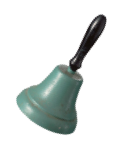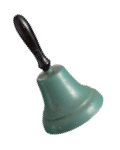Singapore has served as a key node in the trade of food and raw goods within Southeast Asia since the 19th century. Yet, the island has received relatively little attention in the global historiography of food.
This inaugural history workshop, The Hungry City: Singapore's Food History in Global Perspective, seeks to plug this gap. This two-day gathering will reflect on food’s multi-layered and omnipresent nature in Singapore. Public intellectuals, practitioners, faculty members as well as students of history will explore how Singapore's edible past can generate new understandings of the island’s position in Asia and beyond. In keeping with their wide-ranging backgrounds and interests, speakers will draw on a broad range of approaches to history.
Day 1 | 27 May 2021
Registration has closed. You may refer to the videos below to check out the session.
Presentations on Day 1 of the workshop will explore the island’s history from the perspectives of memory, work, and cultural identity. Fresh research on Singapore's hawker culture and kopitiam scene, the histories of labour in home kitchens and restaurants, as well as the changing consumption patterns of salt, stingray, laksa (a spicy noodle dish) and "Singapore Noodles", will also be on the table.
Day 2 | 28 May 2021
Registration has now closed.
On Day 2, speakers will discuss other novel ways of looking at Singapore’s food history. Several presenters will investigate the multidimensional histories of local horticulture, colonial-era slaughterhouses as well as the island’s reliance on the sea for sustenance. Other speakers will discuss the rich history of edibles used to treat common local ailments.
The first of its kind in Singapore, this history workshop will appeal to scholars, heritage specialists and general audiences interested in the edible history of Singapore and the region.
If you are unable to join us for this event but would like to be kept informed about other similar events, please sign up for our events newsletter here: https://www.yale-nus.edu.sg/join-mailing-list/
Co-organised by Anthony Medrano (Assistant Professor of Social Sciences (Environmental Studies), Yale-NUS College) and Geoffrey Pakiam (Fellow, Temasek History Research Centre, ISEAS-Yusof Ishak Institute), held in conjunction with the Singapore HeritageFest 2021.


